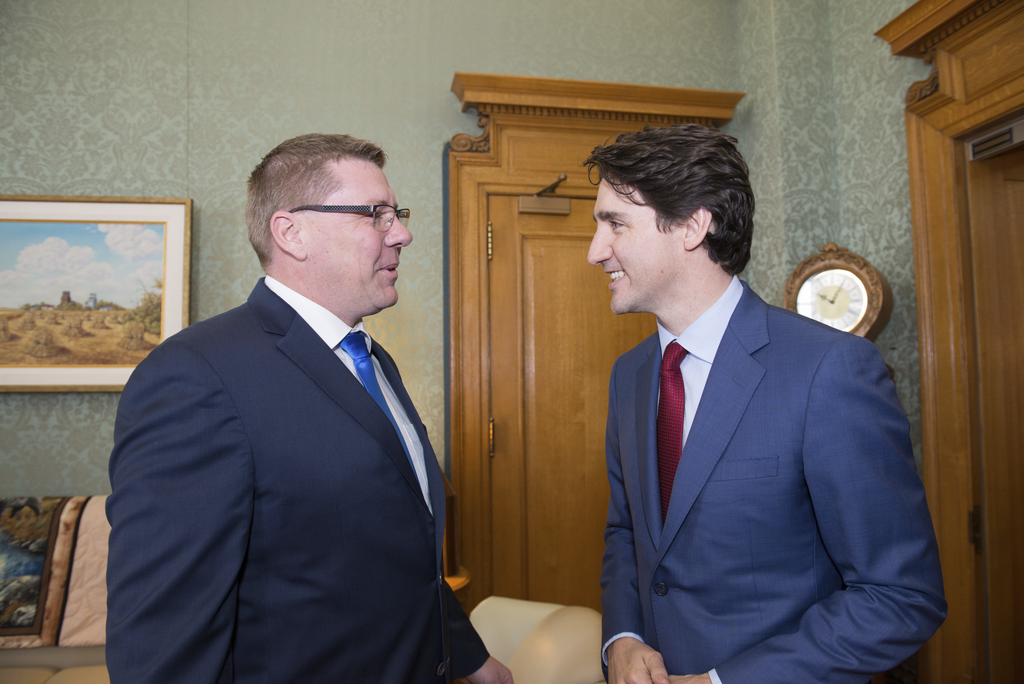Saskatchewan is ready to join the fight to get the Trans Mountain pipeline expansion project completed.

Premier Scott Moe says Alberta is not the only province affected by the issue — Saskatchewan will also see economic and political benefits from the Kinder Morgan project being completed.
On Saturday, Moe told The Roy Green Show that delaying oil’s access to British Columbia ports costs Saskatchewan’s economy around $1.8 billion a year.
Listen below: Saskatchewan Premier Scott Moe appears on the Roy Green Show.
That’s why he says his government is standing behind the project, and willing to fight to get it in the ground.
“So that we can lower that differential, and get the maximum value for the product that we’re exporting,” he said. “Our focus as a government in Saskatchewan is to constantly increase the economic value that we have here. That’s our interest in this pipeline.”

Get breaking National news
Moe also added that he’d be willing to follow the Alberta government’s lead when it comes to retaliation against B.C., which has made attempts to block or delay the project, citing environmental concerns.
Watch below: Some videos from Global News’ ongoing coverage of the controversy surrounding the Trans Mountain pipeline expansion project.
While B.C. imports most of its energy resources from Alberta, legislation introduced last week that threatens to turn off the oil taps to B.C. could change that and Moe thinks the coastal province needs to consider the consequences.
“The next logical place for British Columbia to come for that product is Saskatchewan,” he said. “And we would pass legislation so that it wouldn’t be accessible.
“This pipeline should be built. It’s unfortunate that it comes to a conversation such as this.”
According to Moe, it shouldn’t even be a conversation held between provinces because the project has been approved by the federal government. He said they should be enforcing its construction.
“Pipelines have always been under the federal jurisdiction. They were enshrined in the constitution — pipelines, rail lines, ports — in 1867,” Moe explained. “This is a federal government that has approved this pipeline and it should be built, and it should move ahead immediately.”
Moe blames a lack of action on the part of the Canadian government as a factor in Kinder Morgan suspending non-essential work on the pipeline until a resolution can be reached. He says as long federally approved projects aren’t given assurances they can be completed, investors will lose faith in Canada as an investment opportunity.
Moe says if the pipeline project is blocked even though Ottawa approved it, the constitutional implications for Canada as a strong and united country could also be dire.
“Our nation was built on the construction of some of these projects, and they’ve been very unifying projects for the nation of Canada,” he said.
“If a province such as British Columbia is able to stop one of these projects, it begs the question — do we still have a nation?”
Sunday, Prime Minister Justin Trudeau will meet with Premier Rachel Notley and Premier John Horgan in Ottawa to try and reach a resolution on the pipeline expansion.






























Comments